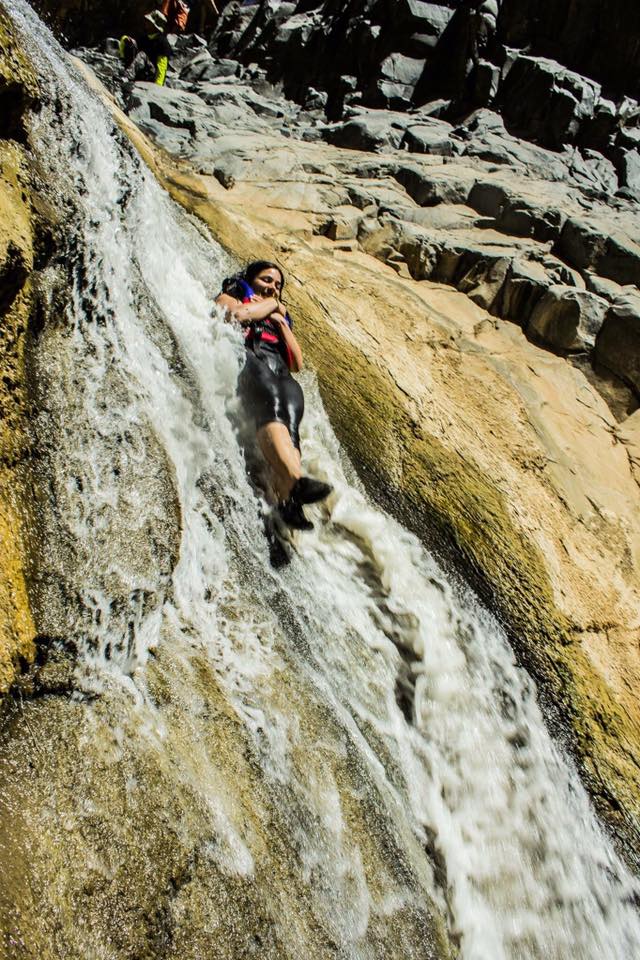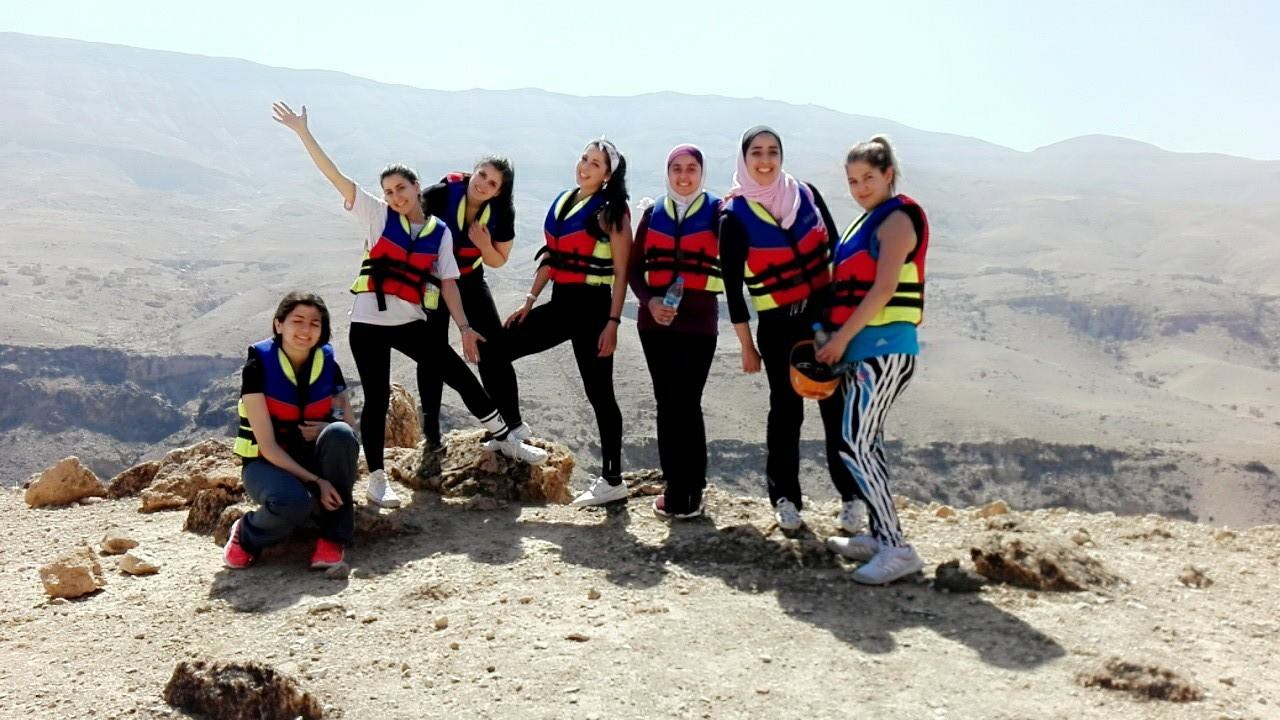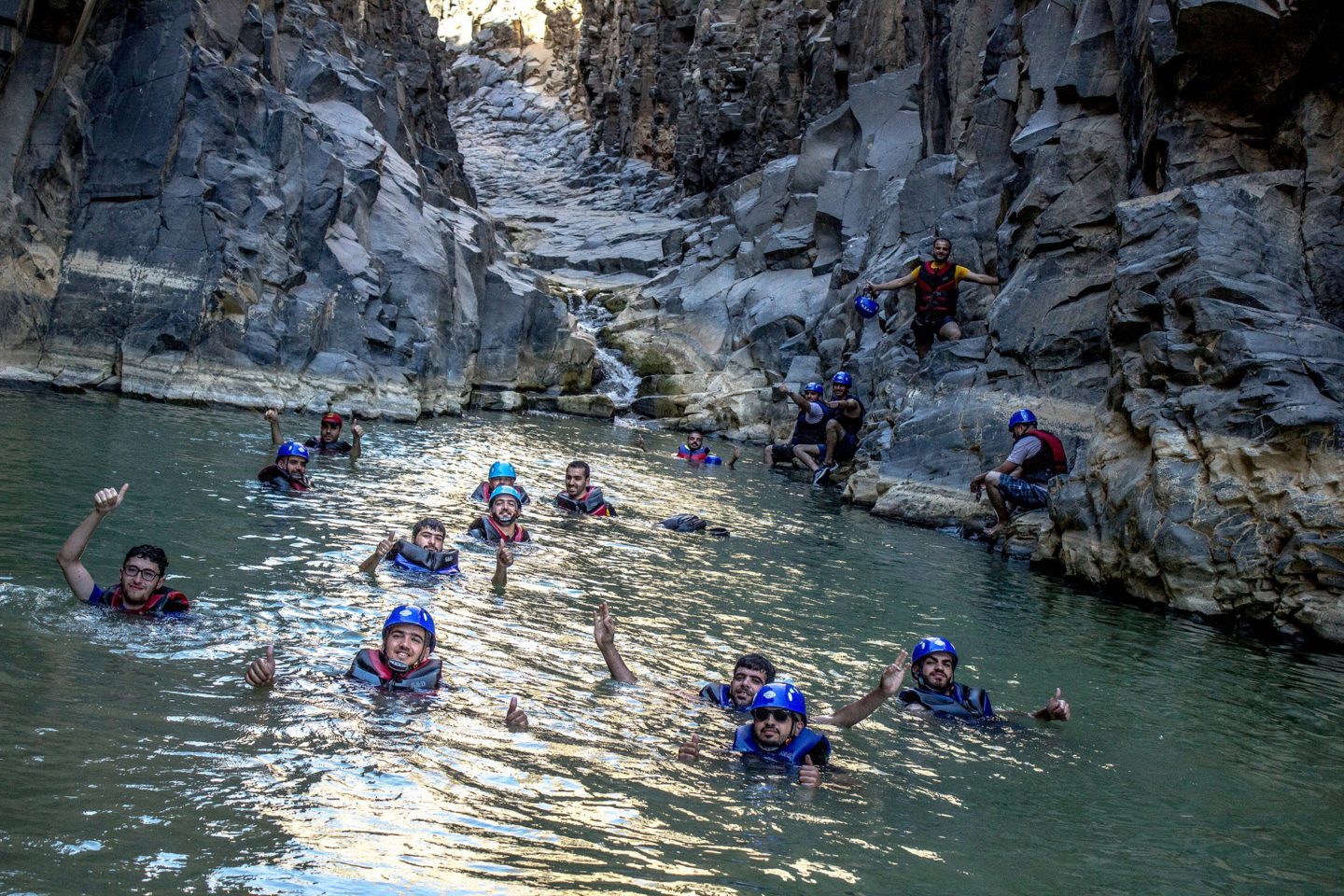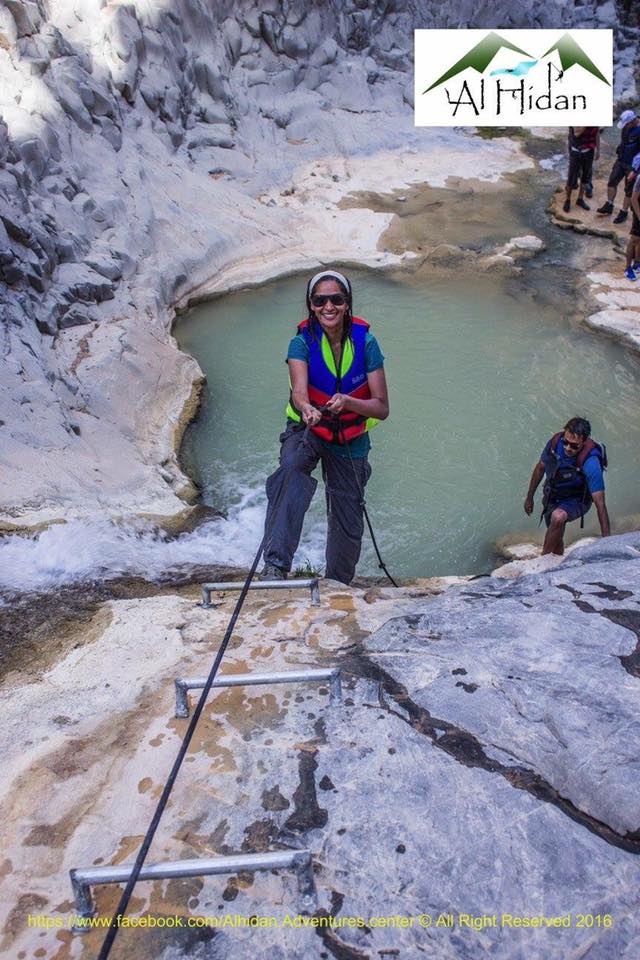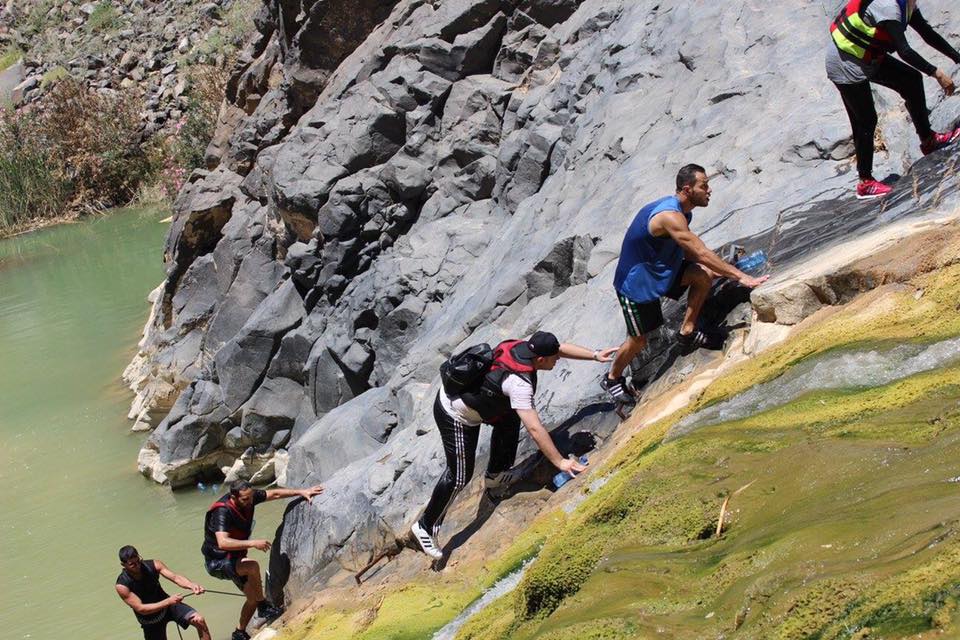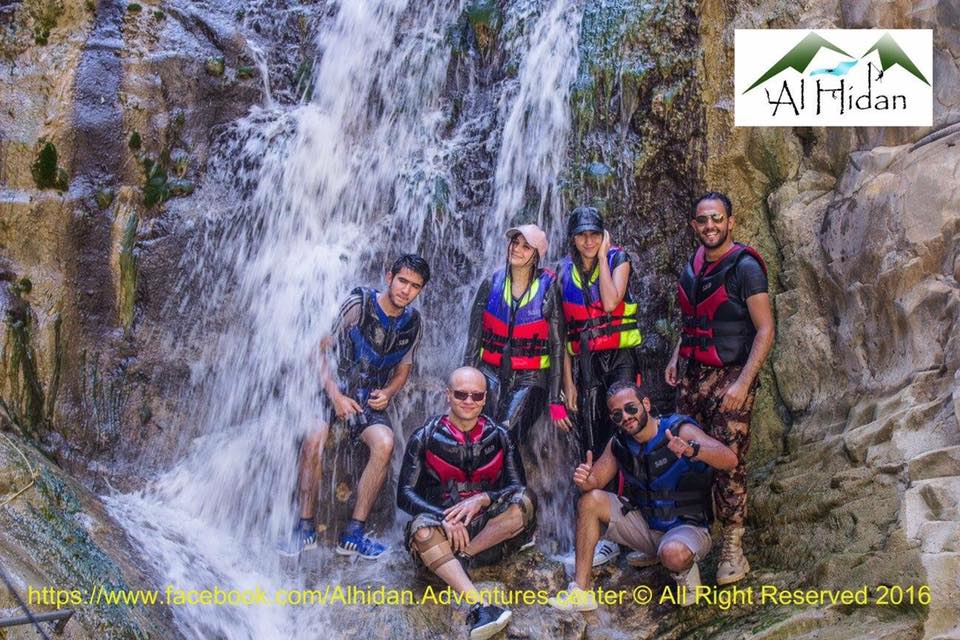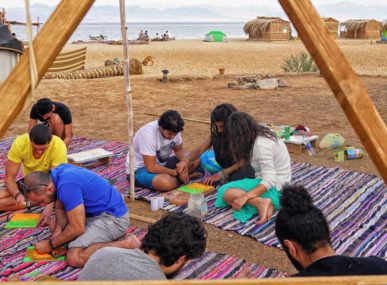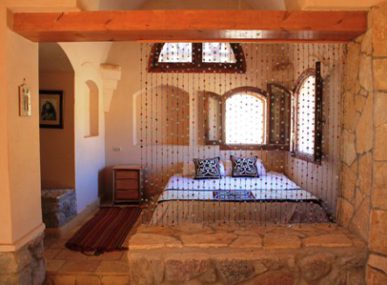Anees Braizat, a native of the area, started visiting Wadi Al Hidan long before it became a popular tourist destination. Braizat grew up in the nearby village of Muleyh near the town of Madaba, and the wadi played a central role in his childhood family outings. He learned to swim in the natural pools and would, as a teenager, bring friends to marvel at the sight. Given these memories, it is perhaps appropriate that Braizat’s mission in adulthood is to maintain the beauty and biodiversity of Wadi Al Hidan for many more generations. He is the Founder and Director of Alhidan Adventures Center, the ecotourism company that runs hiking and canyoning tours in the wadi.
Reviving Wadi Al Hidan:
Wadi Al Hidan was not always the paradise it is today. In fact, the government had shuttered access to the wadi until very recently, fearing its unique biodiversity was on the verge of irreversible damage.
“People were running irresponsible trips,” Braizat remembers. “Visitors were throwing rubbish, making fires with the plants, and hurting the wildlife. People didn’t care about nature, they cared about making money.” An accident in 2015 brought the issue of overcrowding to the forefront. One company brought a tour group of 300 travellers to the wadi, and had them cross one of the waterfalls with a single rope. A visitor broke his leg, and could not be rescued until 2 a.m. the next day. After that, the government closed the wadi.
In 2016, Jordan’s Royal Society for the Conservation of Nature (RSCN) put out an announcement looking for tour operators who could run the wadi according to global standards. They wanted to find a responsible ecotourism company to reintroduce visits to Wadi Al Hidan. Braizat had been serving as a local tour guide for four years and saw an opportunity to save his childhood adventure spot. He created Alhidan Adventures Center and were the only local company to apply for the opportunity. Braizat now operates tours in the wadi in partnership with Wild Jordan, RSCN’s ecotourism arm.
Protecting the wadi — and its visitors:
Protecting — and restoring — the natural environment of the wadi is one of Alhidan Adventure Center’s main missions. Braizat and his team spend one day each week cleaning the wadi, in addition to removing rubbish with every tour group. “We also give visitors a small introductory guidance speech at the start of the trek to inform them about the nature reserve and to ask them to enjoy the wadi without making any change,” Braizat adds.
